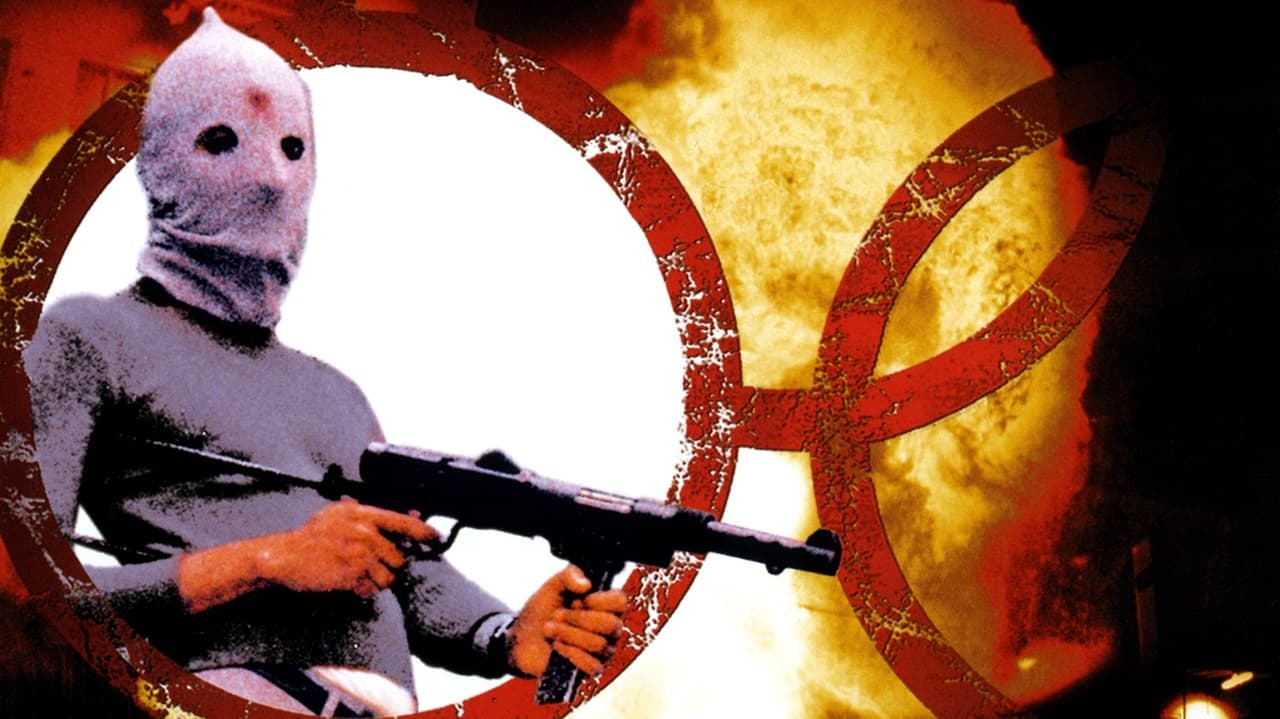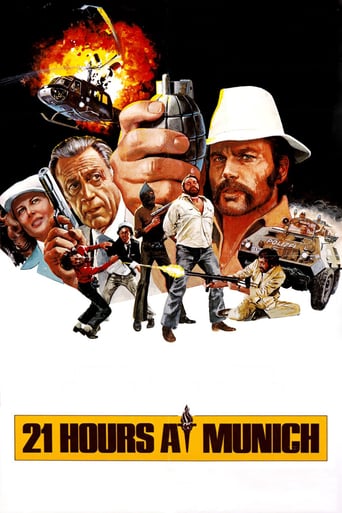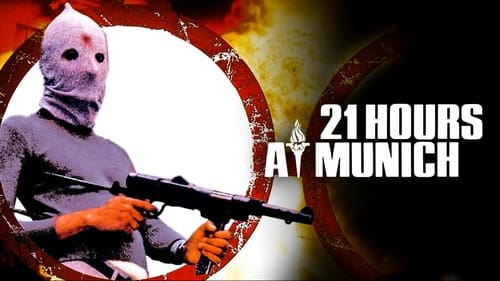



Great story, amazing characters, superb action, enthralling cinematography. Yes, this is something I am glad I spent money on.
View MoreClose shines in drama with strong language, adult themes.
View MoreThe storyline feels a little thin and moth-eaten in parts but this sequel is plenty of fun.
View MoreThe film never slows down or bores, plunging from one harrowing sequence to the next.
View MoreReleased only one Olympic cycle after the actual events occurred during the 1972 Olympics, this film documents many of the behind-the-scenes events that happened while the world watched the horrible drama unfold. As a big fan of the Olympics, I was watching as news stories interrupted the peaceful competition to explain the unthinkable had happened.Terrorists had invaded the Olympic compound--the ultimate symbol of peaceful coexistence--and killed Israeli athletes, taking others hostage as leverage to demand the release of comrades held in captivity. As a viewer, I vividly remember the shadowy image of a man on a balcony, a man who threatened the Olympic principles and the world at large, but somehow, though he was visible, was beyond the reach of retaliation. It was frustrating and tragic, but hostages' lives were in the balance.This film was no doubt an attempt to fill in the blanks for many people who only saw those shadowy images from a distance. But is it more than a documentation? Is it a warning to the world or to those who would use terrorism for their political purposes? Or a tribute, perhaps, to those who did their best to tragic events that unfolded or those who were the victims of those who promote the initiation of violence (even against civilians) as a means to an end?The narrative seems to bear few embellishments to the actual events of 1972. Hostage situations--with all of the accompanying negotiations and strategizing--are dramatic enough. William Holden, as chief of police, adequately portrays a man who will forever second guess his decisions. The leader of the terrorists (Franco Nero), becomes more than a shadowy figure as the film shows moments when his humanity is revealed. Presented with the option to walk away from further bloodshed, he says, "And have people think I am a coward?" When I first heard this line in 1976, I thought it referred to the world at large, but now I wonder if he was thinking about others who sympathized with his world view.
View MoreThe nightmarish specter of terrorism on an international level can be said to have its origins in what occurred during September 4th and 5th, 1972 at the 1972 Summer Olympic Games in Munich, West Germany. For twenty-one hours, the world, having been transfixed by how much the standing of the German nation had improved during these Games from what had been done in Berlin in 1936 under the shadow of Hitler, was horrified by how eight heavily armed gunmen belonging to the Black September terrorist organization had managed to storm the Olympic Village and hold nine Israeli athletes hostage (having already killed two of them). The terrorists' demands, which of course Israel wasn't about to comply with, were the release of two hundred militants from various factions being held in German prisons, or the Israelis would be killed. It all ended in the most horrific way possible at nearby Furstenfeldbruck airport early on the morning of September 5th.The 1976 made-for-TV film 21 HOURS AT MUNICH was really the first dramatic attempt to place these horrific events into context; and given that, when it aired on November 7, 1976, the events were still relatively fresh, it had to have been more than a little painful to watch. That said, this still holds up as a thoroughly well made film about the first act of internationally televised political terrorism. Incredibly filmed on location in Munich itself, the film stars William Holden as Manfred Schreiber, the chief of police in Munich who has to deal with this incredible crisis for which West Germany was woefully unprepared for (deliberately lax security, owing to a desire not to make the Olympic Village seem like a modern-day concentration camp, allowed the terrorists to slip through), with Franco Nero portraying the Black September leader who identifies himself as "Issa". In the main, the approach taken by this movie towards the incident is one resembling a chess game, with nine Jewish pawns in the middle of it all. And when Holden is forced to make the decision to end this thing at Furstenfeldbruck, he is under the assumption that Nero has only four compatriots with him, when in reality it was eight. And with untrained snipers not being told how to coordinate with one another as to the targets, the nightmare that ensues is all but preordained.While it might have been exceptionally tempting for this TV movie, which was scripted by Edward Hume (TWO MINUTE WARNING) and Howard Fast (the author of the source material for Stanley Kubrick's 1960 epic SPARTACUS) from the book of the same name by Serge Groussard, to turn the events into melodramatic fodder, veteran TV and feature film director William A. Graham holds off on that, instead allowing this to become more of a psychological drama in which the entire world was watching. Although much more of the Munich tragedy, including the well-meaning ineptitude of the Bavarian and West German officials and the arrogance of the International Olympic Committee in not halting the games until some eleven hours into the crisis, was shown in the later Oscar-winning 1999 documentary ONE DAY IN September, 21 HOURS AT MUNICH still manages to let a fair amount of that in itself. Holden and Nero are very well matched; and the film also co-stars Shirley Knight, Anthony Quayle, and Richard Basehart (who portrays West German chancellor Willie Brandt).The events of Munich have colored not only the Olympics, both winter and summer, in political and social turmoil of some kind ever since, but a great many sports events around the world, including our Super Bowl and the World Cup. 21 HOURS AT MUNICH, like the later ONE DAY IN September and Steven Spielberg's own 2005 film MUNICH (which looks at Israel's response to the horror), gives us as insightful a glimpse into why this is so as any dramatic presentation could ever hope to accomplish.
View MoreThis film has the look of a theater film instead of a made for television film. Overall it is very satisfying. William Holden does a very good job portraying the West German Police Captain in charge. The supporting members around him are very good as well.The Black September kidnapping attempt of part of the Isreali Olympic team at the 1972 Munich Olympic games is not just a tragedy, but cast a bit of a shadow on the Olympics first visit to Germany since the 1936 Nazi affair. Unfortunately, terrorism seems to have gotten even worse than this incident, but this film tells the story very well about 1972 terrorism.I watched this on an HD broadcast and am very impressed with the quality of the film picture in HD for this 1976 production. The film feels quite authentic, and looks quite so being done only 4 years after the actual events. The Director of this film has over 130 TV & Movie credits in his career and his work here is as good as any on his resume.
View More21 Hours at Munich (1976) *** (out of 4) Pretty good made for TV movie about the 1972 Olympics in Munich, Germany where Arab terrorists kidnapped and murdered eleven Israeli athletes. I don't know the entire history of the events surrounding this attack but if this film stays true to what really happened then I can't help but blame the German government and their security at the Olympics. I really couldn't believe how stupid some of the decisions made where and I really wonder what this event would do in today's world where God knows there's a lot more media. As for the film itself, it's entertaining throughout but it never gets too dramatic and the direction lacks any real style or flair. William Holden gives a good performance as the head Munich guy trying to get everything done while Franco Nero steals the show as the head terrorist. Nero is downright brilliant in his part with a look that could kill. I liked how Nero played the part of a thinking man and this really comes across well.
View More